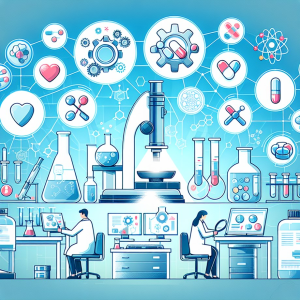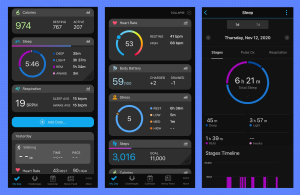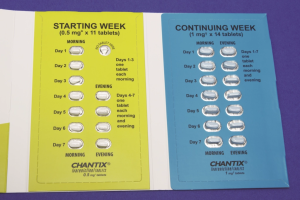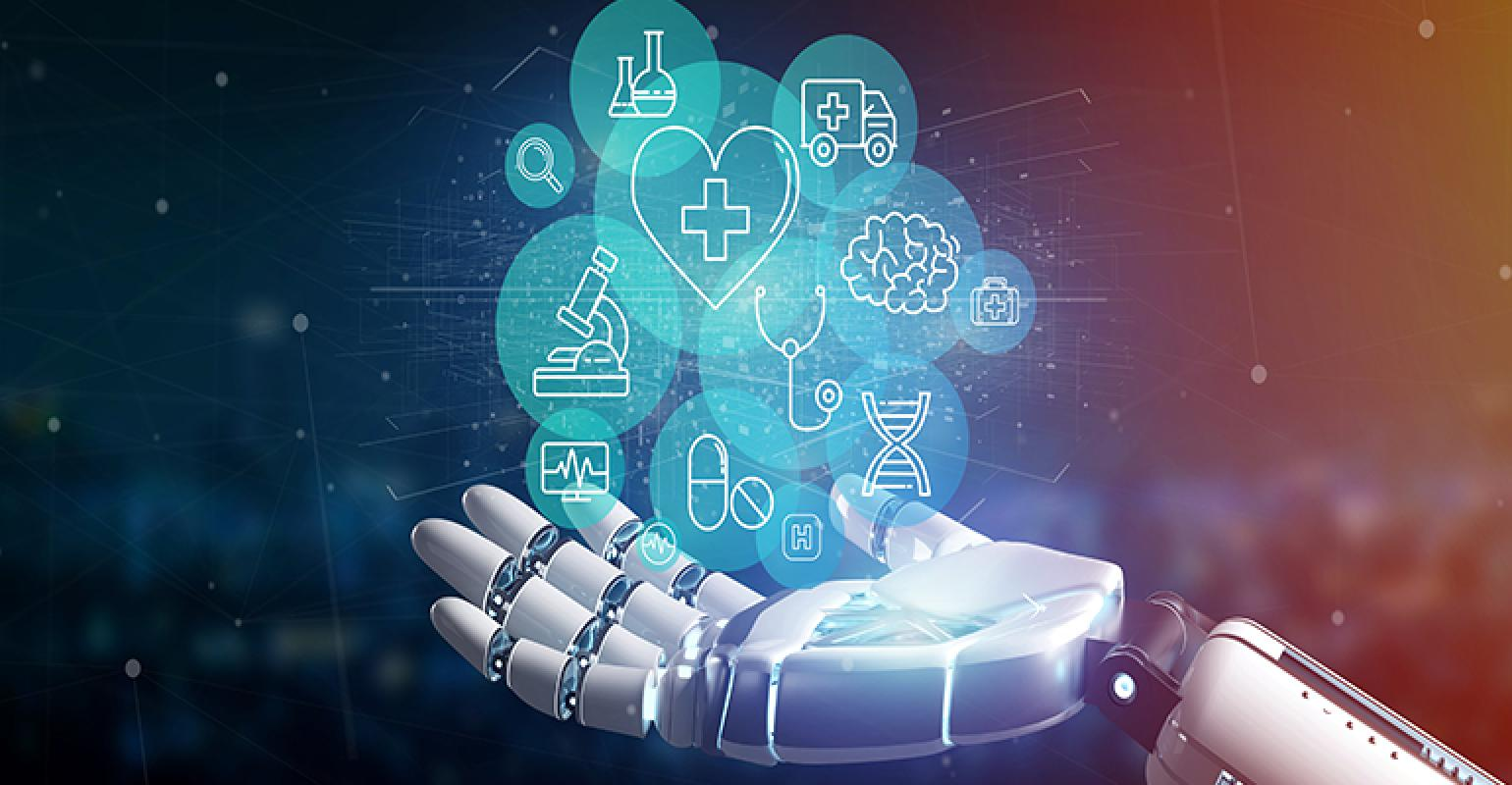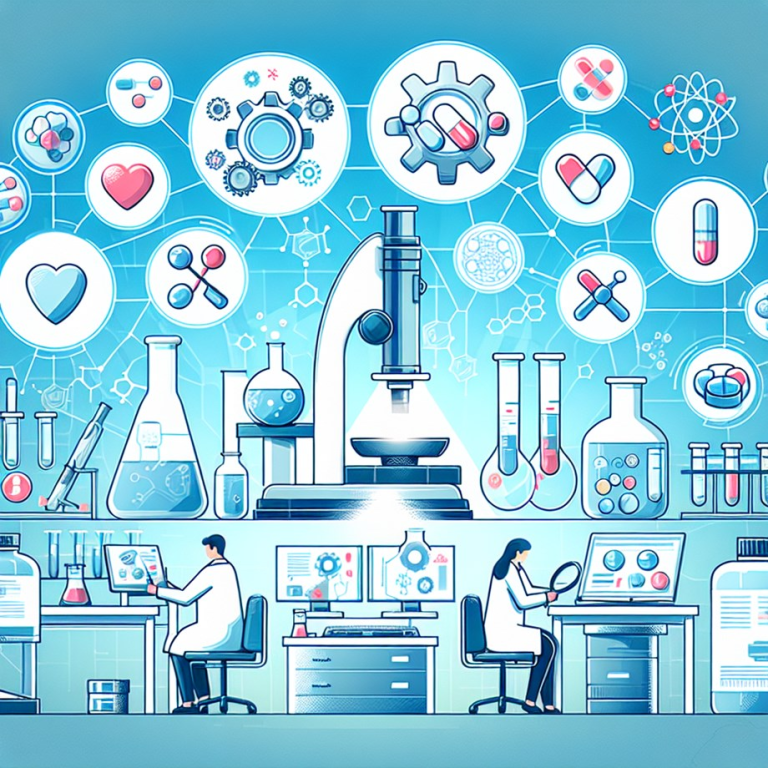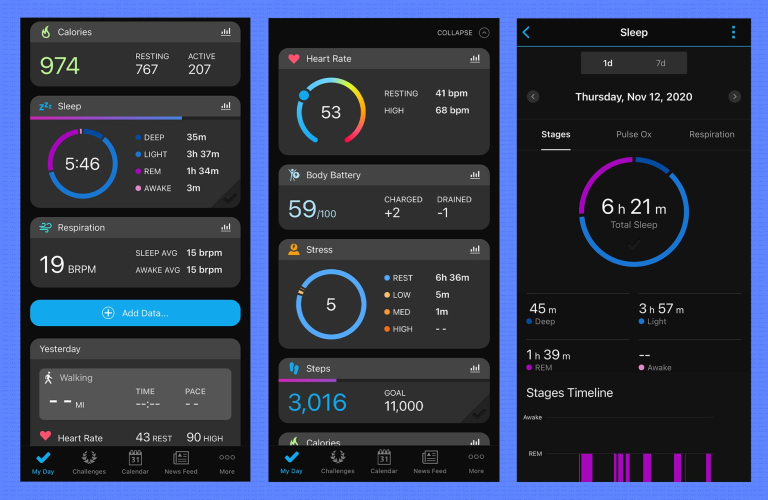AI in healthcare is revolutionizing the way medical professionals interact with technology and enhance patient outcomes. This innovative technology harnesses the power of artificial intelligence in medicine to streamline processes, improve diagnostics, and foster personalized patient care. As AI for patient care gains traction, experts predict a significant transformation in healthcare innovation, enabling clinicians to focus more on empathy and less on administrative burdens. While embracing AI medical education promises to equip future doctors with vital skills, it also raises concerns about AI challenges in medicine, such as potential biases in algorithms. The thoughtful integration of AI into healthcare has the potential to redefine the doctor-patient relationship, enhancing the efficiency and effectiveness of medical care.
The integration of cutting-edge technology in the medical field is often referred to as the digital transformation of healthcare. This shift is marked by the application of intelligent algorithms and systems designed to support clinicians in delivering better patient outcomes. As emerging technologies offer unprecedented insights into medical data, the potential for improved quality of care is immense. However, with the rise of intelligent healthcare solutions, questions regarding the ethical use of these systems and the challenges that accompany such advances are becoming increasingly prominent. Therefore, fostering a new era of healthcare involves addressing both the benefits and the hindrances of implementing advanced technology, ensuring that both healthcare providers and patients benefit from these innovations.
The Impact of AI on Patient Care
Artificial intelligence (AI) is rapidly transforming patient care in ways that were previously unimaginable. With advanced algorithms and machine learning capabilities, AI systems can analyze vast amounts of data to assist healthcare professionals in making more informed decisions. For instance, AI can flag critical changes in a patient’s condition or suggest potential diagnoses that a physician might overlook, drastically improving the speed and accuracy of patient assessments. This enhancement in AI technology promotes a more proactive approach to healthcare, allowing for earlier interventions and ultimately leading to better patient outcomes.
Furthermore, AI in patient care also extends to personalized medicine, where treatment plans can be tailored to individual patient profiles by analyzing genetic information, lifestyle factors, and existing health conditions. This capability presents a revolutionary shift from the traditional one-size-fits-all approach, increasing the effectiveness of treatments while reducing adverse effects. Overall, the integration of AI fosters a more patient-centered healthcare model, which prioritizes better engagement and satisfaction, ensuring that patients receive care that is not only timely but also precisely aligned with their unique needs.
AI in Medical Education: Preparing Future Healthcare Professionals
The incorporation of AI in medical education is poised to redefine how future healthcare professionals are trained. With the advent of AI tools capable of simulating complex clinical scenarios, students can engage in interactive learning experiences that deepen their understanding of medical concepts. These educational platforms utilize AI algorithms to create customized learning pathways, enabling students to progress at their own pace while emphasizing critical thinking and decision-making skills. This experiential learning approach is crucial as it prepares students for real-life challenges in clinical environments.
Moreover, AI facilitates the cultivation of metacognitive skills among medical trainees. By providing instant feedback on clinical decisions and highlighting areas for improvement, AI tools can help students refine their clinical reasoning abilities. This focus on developing a reflective practice ensures that students not only absorb knowledge but also learn to question and analyze their thought processes. Therefore, the integration of AI in medical education is essential for fostering adaptable and insightful healthcare professionals who are equipped to navigate the complexities of modern medicine.
Healthcare Innovation through AI Technologies
AI is at the forefront of healthcare innovation, driving advancements that enhance the overall quality and efficiency of care. Technologies such as natural language processing and predictive analytics are enabling healthcare providers to streamline operations, reduce administrative burdens, and minimize errors in clinical documentation. For example, AI-powered systems can automatically transcribe patient visits and summarize key points, allowing physicians to focus on patient interaction rather than paperwork. This innovation addresses the issue of clinician burnout by decreasing the time spent on tedious tasks, ultimately fostering a more productive work environment.
In addition, AI technologies contribute to significant breakthroughs in medical research by analyzing extensive datasets to generate insights that can accelerate drug discovery and development. By leveraging data from clinical trials and existing medical literature, AI algorithms can identify therapeutic targets and predict potential outcomes, expediting the journey from research to real-world applications. Such innovation not only propels scientific advancement but also ensures that new treatments are developed more rapidly and effectively, significantly benefiting patient populations.
Addressing Challenges of AI in Medicine
Despite the promise of AI in healthcare, several challenges must be addressed to ensure its effective integration into clinical practice. One of the primary concerns is the presence of bias in the data utilized to train AI systems. If algorithms are fed historical data that reflects societal inequities, AI solutions may inadvertently perpetuate these biases, leading to disparities in care. Therefore, it is imperative that developers prioritize diversity and representation in their training datasets to create fair and equitable AI technologies.
Additionally, the phenomenon of ‘AI hallucination,’ where AI produces inaccurate or fabricated information, poses significant risks in a medical context. Trust in AI outputs must be carefully calibrated with human oversight to avoid potentially dangerous misdiagnoses or clinical errors. Developing robust validation protocols and ensuring that medical professionals remain integral to the decision-making process are crucial for maximizing the efficacy of AI while minimizing risks.
Transforming Research with AI’s Capabilities
AI is revolutionizing the landscape of medical research by offering tools that enhance the speed and accuracy of scientific discovery. Researchers are increasingly utilizing AI for tasks such as analyzing genomic data, identifying patterns in disease progression, and predicting patient outcomes based on large datasets. This capacity to derive insights from complex information sets accelerates the research timeline, leading to faster implementation of findings into clinical practice.
Moreover, AI’s ability to synthesize knowledge across diverse domains enables researchers to explore new hypotheses and uncover relationships that may have been previously overlooked. By acting as a catalyst for innovation, AI is contributing to the advancement of personalized medicine, improving the precision of treatments tailored to individual patients. This transformation underscores the critical role of AI in bridging gaps in existing medical knowledge and promoting a more effective healthcare system.
AI’s Role in Enhancing Clinical Decision-Making
The integration of AI into clinical decision-making offers healthcare professionals unprecedented support in diagnosing and treating patients. AI systems can analyze symptoms, medical histories, and test results to assist doctors in making evidence-based decisions quickly. This not only increases diagnostic accuracy but also enhances the overall efficiency of medical practice, ensuring that patients receive timely and appropriate care.
Furthermore, the implementation of AI decision-support tools can reduce cognitive overload for clinicians, allowing them to focus on complex cases that require nuanced human judgment. By eliminating routine tasks and providing actionable insights, AI empowers healthcare providers to allocate more time to patient interaction, thereby improving the quality of the doctor-patient relationship. As AI continues to evolve, its role in enhancing clinical workflows and supporting informed decision-making will become increasingly vital.
Overcoming Ethical Dilemmas in AI Implementation
The integration of AI in healthcare raises several ethical considerations that must be carefully navigated to ensure patient safety and trust. Issues such as patient privacy, data security, and consent management are paramount, as AI systems often require access to sensitive personal information to function effectively. Establishing clear guidelines and regulatory frameworks is crucial to protect patient data while allowing healthcare professionals to leverage AI’s capabilities.
Moreover, the increasing reliance on AI may raise questions about accountability in clinical decision-making. If an AI system suggests a treatment course that results in adverse outcomes, determining liability can become complex. Healthcare institutions must develop policies that delineate the responsibilities of AI developers, clinicians, and organizations to foster a fair and transparent system. Addressing these ethical concerns is essential for building a framework within which AI can thrive while maintaining public trust in the healthcare system.
Preparing for the Future: AI and Lifelong Learning in Medicine
As AI technologies continue to advance, the demand for ongoing education and training in the medical profession becomes increasingly critical. Medical practitioners must be equipped with the knowledge and skills to effectively utilize AI tools and integrate them into their clinical practice. Lifelong learning is no longer an option but a necessity for healthcare professionals who aim to provide optimal patient care in an evolving landscape.
To meet this challenge, medical schools are beginning to incorporate AI training into their curricula, fostering an environment of continuous improvement and adaptation. By instilling a mindset of agility and openness to innovation, future healthcare providers will be better prepared to embrace new technologies as they emerge, ensuring that they remain at the forefront of medical practice. This proactive approach to education will enhance the overall standard of care and benefit patients by facilitating the timely implementation of AI advancements in healthcare.
AI-Powered Solutions for Reducing Healthcare Inequities
AI has the potential to address longstanding healthcare inequities by providing tools that improve access to care for marginalized populations. Through telemedicine and AI-driven diagnostic tools, individuals in underserved areas can receive timely medical attention without the barriers of transportation or geographical limitations. This ability to reach patients where they are can significantly reduce disparities in health outcomes.
Furthermore, AI can help identify and target systemic biases within healthcare systems. By analyzing patterns in patient data, AI tools can highlight gaps in care and identify populations that may be receiving suboptimal treatment. This information is pivotal for healthcare organizations seeking to implement change and promote equity within their practices. By harnessing the power of AI, the healthcare industry can move towards a more inclusive model that acknowledges and addresses the unique challenges faced by diverse communities.
Frequently Asked Questions
What is the role of artificial intelligence in medicine today?
Artificial intelligence in medicine is revolutionizing healthcare by enhancing diagnostic accuracy, streamlining administrative tasks, and improving patient care. AI technologies analyze vast amounts of medical data, aiding healthcare professionals in making informed decisions quickly and effectively. As AI continues to evolve, its role in patient care, medical education, and healthcare innovation is poised to grow, driving significant changes in how healthcare is delivered.
How can AI improve patient care in healthcare settings?
AI for patient care enhances the quality of treatment by providing real-time data analysis and diagnostics. For instance, AI algorithms can assist physicians by suggesting treatment options based on patient histories and current best practices. Moreover, AI systems can predict potential complications, allowing healthcare providers to intervene earlier, thereby improving outcomes and patient satisfaction.
What are the challenges facing AI in healthcare?
AI challenges in medicine include concerns about data bias, which could exacerbate existing disparities in healthcare access and quality. Additionally, there are fears regarding the reliability of AI-generated information, as these systems can produce ‘hallucinations’ or inaccuracies. Ensuring ethical AI practices and equitable access to healthcare solutions remains critical as the technology advances.
How is AI transforming medical education?
AI in medical education is reshaping how students learn by providing personalized learning experiences and instant access to vast medical knowledge. Tools like ‘tutor bots’ and virtual patient scenarios allow students to practice clinical skills safely. AI helps students transition from rote memorization to higher-level critical thinking, ultimately preparing them for the complexities of modern medicine.
What future innovations can we expect from AI in healthcare?
Future innovations in AI for healthcare may include more advanced diagnostic tools, improved patient management systems, and personalized medicine approaches that tailor treatments to individual patients based on genetic information. The integration of AI could lead to a more efficient healthcare system with better health outcomes, transforming how healthcare is practiced and experienced.
| Key Points |
|---|
| AI’s potential to alleviate human suffering is significant, yet readiness and caution are necessary. |
| The application of large language models (LLMs) is set to transform healthcare, enhancing doctor-patient interactions and streamlining administrative tasks. |
| Concerns about biases in AI systems threaten equitable healthcare, potentially exacerbating existing disparities. |
| AIs can assist clinicians but may also lead to complacency if physicians over-rely on technology. |
| The medical community must ensure AI systems are developed thoughtfully to avoid perpetuating biases and falsehoods. |
| Innovation in AI is essential but must be coupled with comprehensive understanding to enhance critical thinking among medical practitioners. |
| The integration of AI within clinical settings holds promise for enhanced patient care and outcomes. |
Summary
AI in healthcare is revolutionizing how medical professionals approach patient care and administrative efficiency. With innovative applications and insights from large language models, practitioners can enhance decision-making and improve patient outcomes significantly. However, it is crucial to remain vigilant against potential biases in AI systems that could hinder equitable access to care. As AI technology evolves, it paves the way for a future where healthcare is more efficient, informed, and compassionate.

